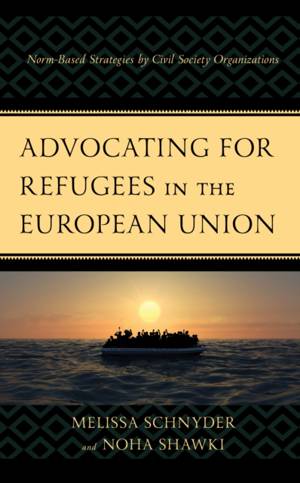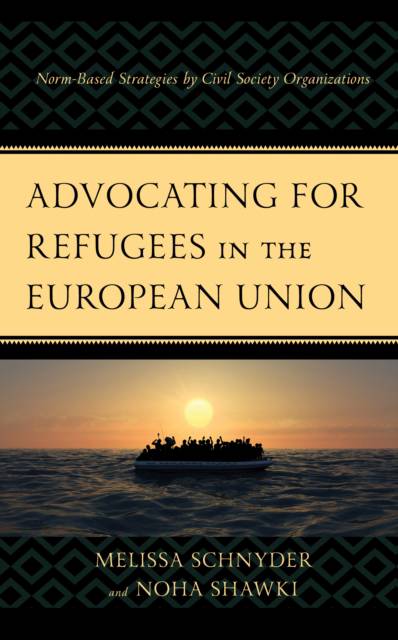
- Afhalen na 1 uur in een winkel met voorraad
- Gratis thuislevering in België vanaf € 30
- Ruim aanbod met 7 miljoen producten
- Afhalen na 1 uur in een winkel met voorraad
- Gratis thuislevering in België vanaf € 30
- Ruim aanbod met 7 miljoen producten
Zoeken
Advocating for Refugees in the European Union
Norm-Based Strategies by Civil Society Organizations
Melissa Schnyder, Noha Shawki
Hardcover | Engels
€ 178,95
+ 357 punten
Omschrijving
The crisis of forced displacement is compounded by the politicization of asylum and refugee protection, which have become polarizing issues in many countries in Europe and in the United States. It has animated efforts by pro-refugee civil society groups to engage in advocacy efforts that respond to the securitization of the issue, reframe it as a human rights and humanitarian issue, and bring about policies that are favorable to refugee protection. The contrasting points of view surrounding refugee and asylum policy reveal a fundamental normative difference in what is considered the most appropriate standard of behavior to guide actions and policies in the wake of the European refugee crisis. This normative difference, and the contestation that it entails, represents the starting point for this study of specific strategies of norm-based change. The study focuses on civil society organizations (CSOs) and the deliberate ways they incorporate and use norms in framing and responding to the issue of refugee protection. It seeks to understand and explain how and why pro-refugee advocacy groups choose to use specific norm-based strategies of advocacy in their effort to shift public opinion on the issues of asylum and refugee protection and ultimately bring about policy change.
Specificaties
Betrokkenen
- Auteur(s):
- Uitgeverij:
Inhoud
- Aantal bladzijden:
- 238
- Taal:
- Engels
Eigenschappen
- Productcode (EAN):
- 9781793600240
- Verschijningsdatum:
- 20/05/2020
- Uitvoering:
- Hardcover
- Formaat:
- Genaaid
- Afmetingen:
- 152 mm x 229 mm
- Gewicht:
- 485 g

Alleen bij Standaard Boekhandel
+ 357 punten op je klantenkaart van Standaard Boekhandel
Beoordelingen
We publiceren alleen reviews die voldoen aan de voorwaarden voor reviews. Bekijk onze voorwaarden voor reviews.











